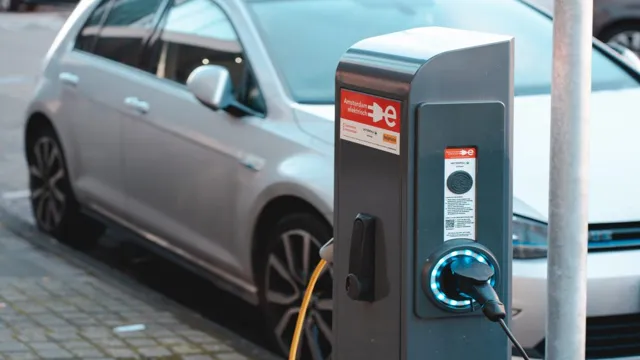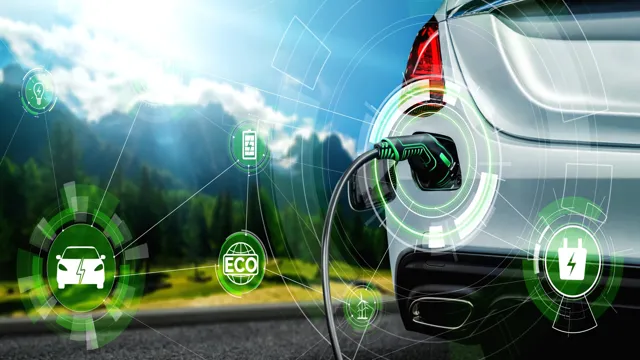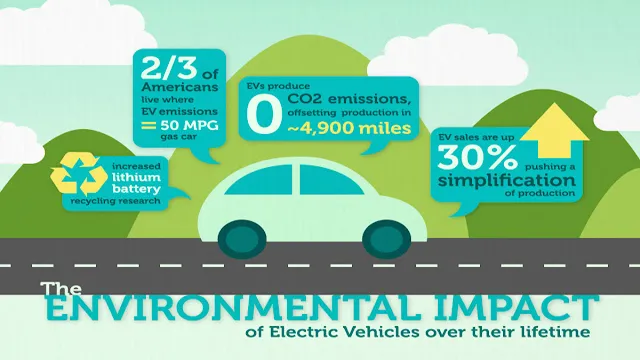Discover the Hidden Savings: Understanding the Tax Benefits of Owning an Electric Car
Electric cars are growing in popularity as people become more environmentally conscious and want to reduce their carbon footprint. Besides, electric vehicles offer many benefits, including lower fuel costs, reduced maintenance, and tax incentives. The tax incentives and credits make owning an electric car more affordable and accessible to everyone.
It’s not just a green option; it’s also a financial one. So, what are the tax benefits of buying an electric car? In this blog, we’ll dive into the details and help you understand how you can save money on your next car by going electric.
Federal Tax Credits
One of the greatest incentives to buying an electric car is the ability to receive federal tax credits. These credits are intended to offset the higher cost of electric vehicles compared to their gas-powered counterparts. The amount of the credit varies depending on the vehicle’s battery size, with larger batteries receiving a bigger credit.
In addition, some states offer their own tax credits and rebates on top of the federal credit. The tax benefits of buying an electric car can amount to thousands of dollars in savings, making them a more affordable and attractive option for environmentally conscious drivers. Not only do electric vehicles benefit the environment, but they also save you money in the long run.
So, if you’re in the market for a new car, consider how much you could save by going electric and taking advantage of these federal tax credits.
Credit Amounts
Federal tax credits are a great way to save money on your taxes while making important investments in your home or business. These credits apply to a variety of expenses, from upgrading your HVAC system to installing solar panels. The amount of credit you can receive varies depending on the type of project and the specific details of your situation.
For example, if you install a new central air conditioning system in your home, you may be eligible for a tax credit of up to $300. If you install solar panels on your home or business, you could receive a much larger credit, depending on the size and capacity of your solar system. It’s always a good idea to consult with a tax professional to determine your eligibility for federal tax credits and to make sure you’re taking full advantage of all the credits available to you.
So if you’re considering making important upgrades or investments in your home or business, be sure to look into federal tax credits to help you save money and achieve your goals.

Eligibility Requirements
Federal tax credits are an excellent way for taxpayers to decrease their tax bills while supporting certain activities or investments. These credits are available to businesses and individuals who meet specific eligibility criteria. In general, federal tax credits are offered to encourage certain actions like investing in renewable energy, hiring qualified employees or taking care of people with disabilities, amongst others.
The requirements for these credits might vary, depending on the program, and taxpayers need to meet the necessary restrictions to qualify. It is worth noting that some credits, such as the earned income tax credit, can benefit low and moderate-income earners, while others like the research and development tax credits boost companies that are innovating in their industries. Those interested in taking advantage of these credits can consult the IRS’ website for more information on eligibility and requirements.
Ultimately, if you meet the criteria, the credits can be a substantial tax benefit, and you may want to speak with a tax professional to optimize the tax savings for your specific situation.
State and Local Incentives
If you’re thinking about buying an electric car, it’s important to note that you may be eligible for a variety of state and local incentives. These incentives can include tax credits, rebates, or special access to carpool lanes and charging stations. Each state and city may have different programs, so it’s best to do your research and see what’s available to you.
For example, in California, you may be eligible for up to $7,000 in rebates for purchasing an electric vehicle and up to $2,000 for installing a home charging station. Additionally, some states offer discounts on vehicle registration fees for electric cars and reduced or waived toll fees for carpool lanes. Overall, these incentives can greatly reduce the cost of buying and owning an electric car, making it a smart financial and environmental choice.
State Tax Credits
State tax credits can be a valuable incentive for businesses to operate in certain areas. Many states and local governments offer tax credits and other incentives to attract or retain businesses within their borders. However, the availability and types of incentives can vary widely from state to state and even within regions of the same state.
These incentives can range from exemptions or reductions in various taxes to grants or low-interest loans. Some states may also offer tax credits for businesses that hire certain groups of people, such as veterans or individuals with disabilities. It’s important for businesses to research and understand the specific tax credits and incentives that are available in their area.
Not only can they potentially save money on taxes, but they may also benefit from increased resources and support from the local community.
Sales Tax Exemptions
Sales tax exemptions are one of the many state and local incentives available for businesses. These exemptions can vary from state to state, but typically allow companies to avoid paying sales tax on certain items, such as equipment or materials used for manufacturing. This can result in significant cost savings for businesses, allowing them to reinvest in their operations or expand their workforce.
However, it is important to note that sales tax exemptions often come with certain requirements that businesses must meet to be eligible. For example, a company may be required to create a certain number of jobs or invest a certain amount of money in the local community. These requirements can help ensure that the incentives are being used to benefit both the business and the community as a whole.
Overall, sales tax exemptions can be a valuable tool for businesses looking to reduce costs and grow their operations, but it is important to carefully consider the terms and requirements of any incentive program before participating.
Reduced Vehicle Registration Fees
Reduced Vehicle Registration Fees If you’re looking to save money on your vehicle registration fees, there may be state and local incentives available to you. Some states offer reduced rates for electric or hybrid vehicles as a way to encourage more eco-friendly driving. Additionally, some localities offer reduced rates for low-income individuals or those who own older vehicles.
These incentives can help make car ownership more affordable for those who might struggle with high registration fees. Just be sure to check with your state or local government to see what incentives are available and if you qualify for them. By taking advantage of these programs, you can enjoy the benefits of car ownership without breaking the bank.
Business Tax Credits
If you’re considering purchasing an electric car, you may be wondering what the tax benefits are. One of the biggest incentives is access to business tax credits. The federal government offers a tax credit of up to $7,500 for electric vehicles, and some states also offer additional incentives.
These tax credits can help offset the higher cost of electric vehicles and make them a more cost-effective option for businesses. Plus, electric cars are generally cheaper to maintain and have lower operating costs than traditional gas vehicles. So not only are you helping the environment, but you can also save money on taxes and fuel costs in the long run.
So, if you’re looking to upgrade your business’s transportation options, an electric car could be a wise and eco-friendly investment.
Section 179 Deductions
Section 179 deductions can be an essential tax credit for small businesses. These deductions allow for businesses to write off the entire cost of equipment and property purchases in the year they are made, rather than having to depreciate them over several years. This can be especially beneficial to businesses that need to make large investments in equipment or property to grow their operations.
The Section 179 deduction limit for 2021 is $05 million, which means businesses can expense up to that amount in qualified purchases. This deduction is a great way to reduce the tax burden on your business and free up cash flow to reinvest in your operations.
However, it’s important to work with a tax professional to ensure that you are taking full advantage of all available deductions and credits while complying with IRS regulations. By doing so, you can maximize your savings and help your business thrive.
Alternative Fuel Infrastructure Tax Credit
The Alternative Fuel Infrastructure Tax Credit is a business tax credit designed to incentivize investments made in alternative fuel refueling stations. Companies that invest in alternative fuel infrastructure, such as electric vehicle charging stations or hydrogen fuel cell refueling stations, can claim a tax credit of up to 30% of the total cost of the project. This tax credit was introduced to promote the growth of alternative fuel infrastructure and reduce the country’s dependence on fossil fuels.
By investing in alternative fuel infrastructure, businesses can not only reduce their carbon footprint but also attract environmentally conscious consumers. The Alternative Fuel Infrastructure Tax Credit is a great way for businesses to contribute towards a cleaner and more sustainable future while also making a sound financial investment.
Conclusion
In conclusion, buying an electric car not only benefits the environment but also your wallet. The tax benefits of purchasing an electric car are shockingly electrifying. From federal incentives to state rebates, you can save thousands of dollars on your annual taxes.
And let’s not forget about the long-term savings in fuel and maintenance costs. So why not jazz up your driving experience, and zap those tax bills with an electric car?”
FAQs
What are the tax benefits of buying an electric car?
There are several tax benefits of buying an electric car, including federal tax credits of up to $7,500 and potential state tax credits or rebates. Additionally, electric car owners may be eligible for other incentives such as reduced toll fees and free public charging.
How do I claim the federal tax credit for buying an electric car?
To claim the federal tax credit for buying an electric car, you must file IRS Form 8936 with your tax return. The credit is non-refundable, so if your tax liability is less than $7,500, you may not be able to claim the full amount in the first year.
Are there any restrictions on the tax benefits of buying an electric car?
Yes, there are some restrictions on the tax benefits of buying an electric car. For example, the federal tax credit is limited to qualifying vehicles and begins to phase out after the manufacturer sells 200,000 electric cars. Some states also have restrictions on eligibility for tax credits or rebates.
How much money can I save in taxes by buying an electric car?
The amount of money you can save in taxes by buying an electric car depends on several factors, including the purchase price of the car, your tax liability, and the specific tax incentives available in your state. However, it is possible to save thousands of dollars in taxes over the lifespan of the car.







